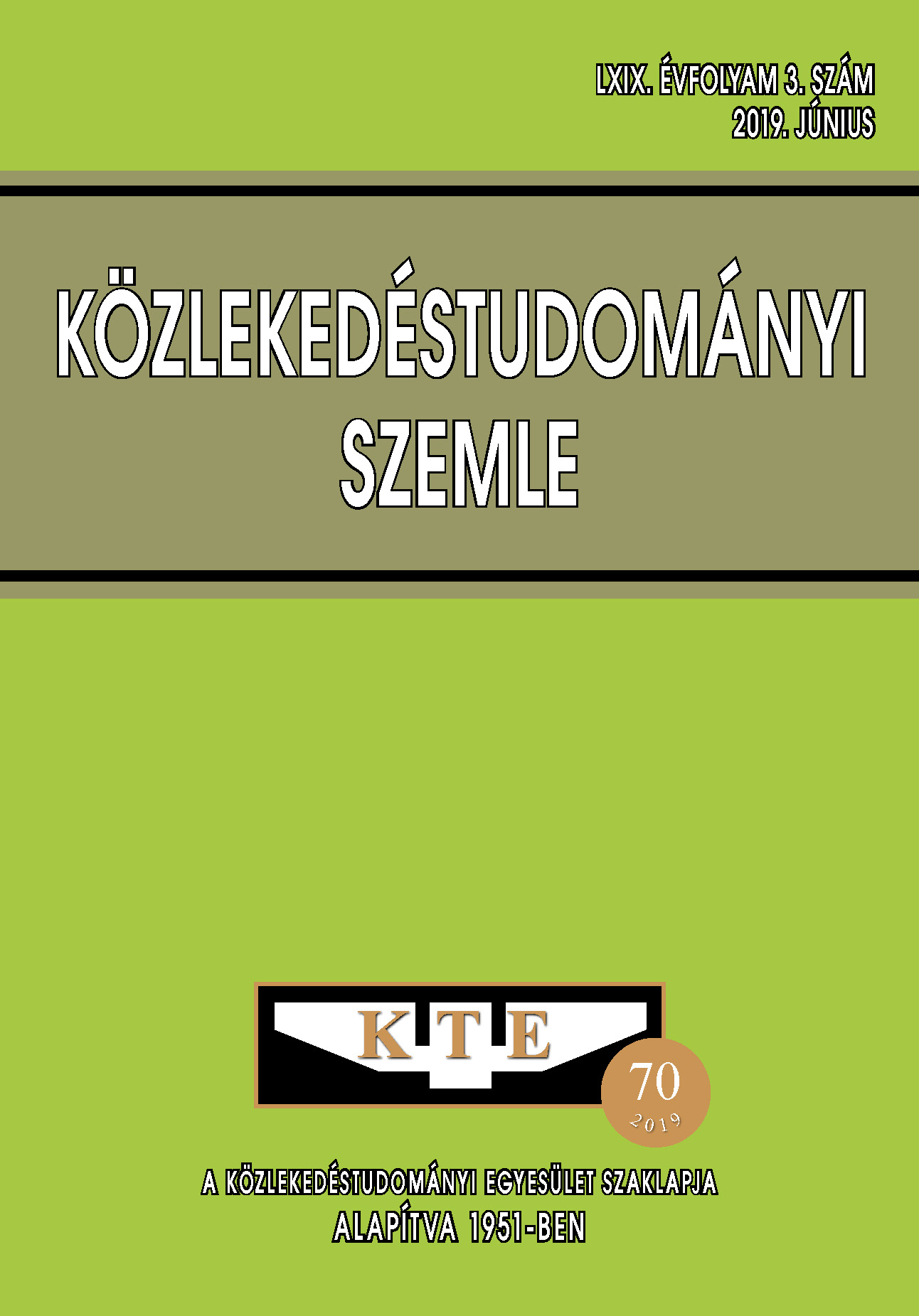Market structure and competition in rail freight
Abstract
The transport sector is a significant economic sector within the European Union (EU) and within the Hungarian national economy. In the EU, the transport sector, which employs around 10 million people and makes up nearly 5% of the GDP, is one of the motors of the EU economy and it plays an important role in securing and increasing economic growth, competitiveness and sustainable development. The objective of the railway reforms introduced by the EU some 25 years ago was to make rail transport and rail freight more competitive. The 2011 White Paper outlines the objectives of the EU and thus of Hungary in the field of transport policy until 2030 and 2050 respectively. In connection with the above, rail freight transport has a great potential not only for volume growth but also for increasing its market share in the EU and int he Hungarian freight market. Continuous economic growth creates more freight needs, in which rail freight must also play an important role. This is the elementary interest of both the railways and the whole society, as an environmentally friendly and livable EU is in the interest of all of us.
References
Crozet Y. (2016): Introducing competition in the European rail sector. https://www.itf-oecd.org/sites/default/files/docs/competition-european-rail-sector.pdf
EC (2016): Fifth report on monitoring developments of the rail market. European Commission, Brussels. http://eur-lex.europa.eu/legalcontent/EN/TXT/PDF/?uri=CELEX:52016SC0427&from=en
EP (2015): On the implementation of the 2011 White Paper on Transport: taking stock and the way forward
towards sustainable mobility. European Parlameint, Brussels. http://www.europarl.europa.eu/sides/getDoc.do?pubRef=-//EP//TEXT+REPORT+A8-2015-0246+0+DOC+XML+V0//EN
Édes B–Gerhardt E–Micski J: A liberalizáció első időszakának versenyszempontú értékelése a magyar vasúti teherszállítási piacon http://econ.core.hu/file/download/vesz2011/vasuti_teher.pdf
Európai Számvevőszék (2016): Vasúti árufuvarozás az Unióban: az ágazat még nincs sínen https://www.eca.europa.eu/Lists/ECADocuments/SR16_08/SR_RAIL_FREIGHT_HU.pdf
Koós G (2008): Piacnyitás a vasúti szektorban 325-374.o. http://www.econ.core.hu/file/download/vesz/verseny_13_KoosG_vasut.pdf
Sánchez-Monsálvez-Serrano (2008): Vertical and Horizontal Separation in the European Railway Sector1: Effects on Productivity. https://www.researchgate.net/publication/28246031
Articles published electronically are open access (OJS), freely available online and can be downloaded. Authors of articles are not charged any publication or publishing costs (APC). Users have the right to read, download, copy, print, and search the articles, or share the full text with a link.
Authors must declare that their submission has not been previously published in another journal, that financial support has been acknowledged, and that the list of references is complete and accurate, including specification of URLs and DOIs (if available). When submitting a draft article, each author approves the submitted version. Authors guarantee that the article is their original work. Authors are required to participate in the peer review process, follow the advice of reviewers, meet the prescribed deadlines, and, if any, withdraw the submission or correct errors.
All submitted articles are subject to peer review, where the editors request an independent evaluation from at least one expert, ensuring that the reviewer(s) have no conflicts of interest with the authors. The final decision is made by the Editor-in-Chief, who takes into account the evaluations and the suggestions of the editors. The editors and reviewers treat the submission confidentially.
The publisher and editors are committed to maintaining high ethical standards and to preventing publications that involve research misconduct. They follow the COPE guidelines on such ethical issues.
The authors retain copyright and grant the journal the right of first publication under the Creative Commons License (https://creativecommons.org/licenses/by-nc-nd/4.0), which allows others to share the work, while acknowledging the authorship of the work and the first publication in the journal.
The journal archives all published articles, and the journal's owner, the Hungarian Society of Transportation Sciences, will continue to operate the database even if the journal ceases to be published.















